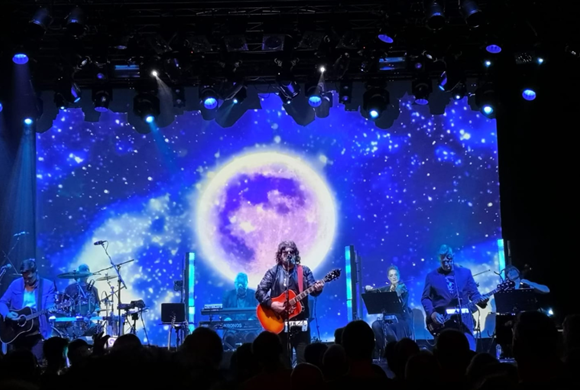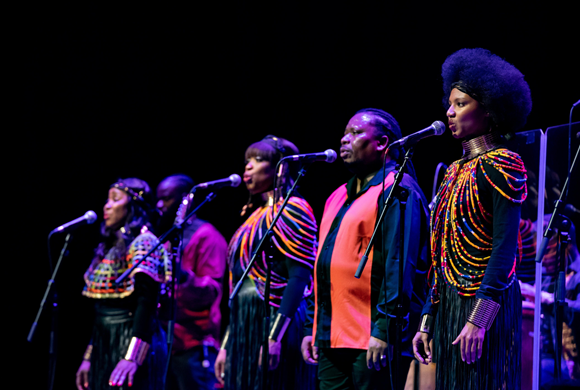
October 2025 - In Conversation with Julian Bliss
An incredible twenty years since he first appeared here at the Hall as a superstar teenage virtuoso, clarinettist Julian Bliss returns to Hope Street once again next month – and he’s bringing a real treat of a performance along with him.
As we get ready to welcome him back for Copland’s Clarinet Concerto – a captivating work influenced by all sorts of music – we caught up with Julian to chat about the piece, his influences and career, and what it is that keeps him coming back to Liverpool.
What made you choose the clarinet at such a young age?
I was four when I expressed an interest in playing music. At that age I didn’t know what instrument I wanted to play, so my mum took me to the local music school, which was fantastic. They encouraged me to try all sorts of instruments, some of which I liked and others not so much! I can still clearly remember the day I was handed a clarinet. It was a smaller plastic version made for children, and I was shown how to hold the instrument, how to shape an embouchure, and make a sound. I dread to think what sort of sound it was, but within minutes I knew it was the instrument for me, and from that day I never looked back.
You don’t just perform classical music, but jazz too. Regardless of genre, what draws you to certain pieces of music?
I think the most important thing for me is to play music that makes people feel something. It doesn’t matter to me whether it is classical, jazz, contemporary music, or anything else. I have never been too concerned with boundaries or labels. For me it is about the energy and the emotion in the music. If I find a piece that excites me or that I can really lose myself in, then I know it is worth sharing with an audience. That mix of styles also keeps things fresh for me as a performer.
You’ll be with us in Liverpool soon playing Copland’s Clarinet Concerto, which of course features jazz influences – and some Latin flavours as well? Tell us a bit about the piece and its history.
It was actually the jazz legend Benny Goodman who commissioned Copland to write this concerto. The ‘King of Swing’ had a real interest in classical music and took it incredibly seriously. He relearnt some techniques and took lessons from clarinettist Reginald Kell. He began to perform and record many of the major works in the clarinet repertoire. He also commissioned several wonderful pieces for the instrument, and this concerto is one of the most important.
The piece is slightly unusual in its structure. It is written as one continuous movement made up of three distinct sections. The opening is a beautiful, lyrical slow movement, where the clarinet floats above the strings with long singing lines. The orchestra then fades away and the clarinet tentatively starts a cadenza, which gradually introduces ideas that return later on. The cadenza has always felt like an improvisation to me. After the climax of the cadenza we move straight into the final section, which is full of rhythm, energy, and character. Copland does weave in some Latin elements, perhaps inspired by the time he spent in Rio de Janeiro while writing the work. There is even a popular Brazilian tune hidden in the music!

Talk us through the day of a performance – how do you prepare?
Nothing particularly exciting I'm afraid! I try to keep things as relaxed as possible. Usually there is a dress rehearsal, and after that I like to have a light lunch, maybe go for a walk, and if there is time even have a short rest. Of course, it doesn't always work out that way since there can be a lot going on before a concert, so I don’t have strict routines that I must follow.
What is the most rewarding part of being a concert musician? And the most challenging?
I think the most rewarding part is having the opportunity to play great music with great people in wonderful places. For a musician, what could be better than that?! I think one of the more challenging aspects for many musicians is the business side of the profession. When we are studying, we often don't get taught much about running a business, marketing or managing the practical side of a career in music. That can make the transition into the professional world a steep learning curve for a lot of people.
What music is featuring on your playlists at the minute?
My playlists are very eclectic! I listen to a lot of jazz – it’s really my go-to for all situations. Having said that there are playlists that include everything from Black Sabbath all the way to Lady Gaga!
You first performed in the Hall back in 2005 and have returned to play here many times since then – thank you for so many wonderful performances! What keeps you coming back?
It's always a pleasure to be in Liverpool. The Orchestra is one of the finest around, and every concert is really enjoyable, with fantastic music-making. Everyone in the Orchestra and the organisation is welcoming and kind, which makes for a great atmosphere. The audience is also wonderful and friendly, and it's always great to see so many people support such an important part of the culture of the city.
And finally, if you weren’t performing in a concert, what would you do on a day off in Liverpool?
I love good food, so I would probably try some of the restaurants on my list that I haven't had a chance to visit yet. At the moment, Manifest is at the top of my list!
Hear Julian Bliss take on Copland's Clarinet Concerto here at the Hall on Saturday 11 October.
Recommended
-
Most popular
-
Most popular
-
Most popular
-
Most popular
-
Most popular
-
Most popular










